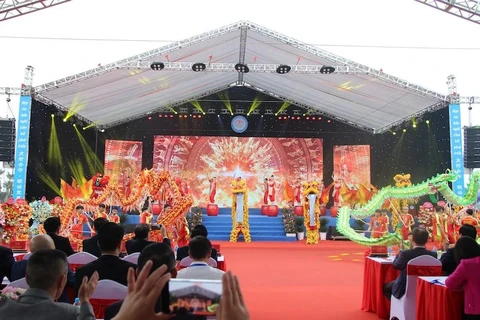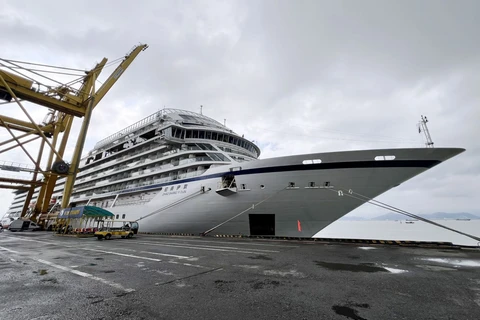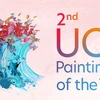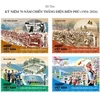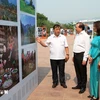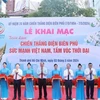Hanoi (VNA) – With rich cultural resources, Vietnam has advantages to develop cultural tourism as an important service economic sector, according to Nguyen Trung Khanh, Chairman of Vietnam National Authority of Tourism (VNAT).
The official said that under the national strategy for developing Vietnam's cultural industries to 2030, cultural tourism will account for 15-20% of the total of about 40 billion USD in revenue.
Over the recent years, Vietnam has done a great job in preserving and promoting the value of cultural heritage. Cultural tourism products have been developed based on exploiting the inherent natural value of heritage such as traditional culture, community cultural life, and festivals.
New types of cultural tourism products are being promoted such as performing arts, music festivals, cinema, fashion, and contemporary performing arts.
Recent shows by BlackPink - a girl band from the Republic of Korea - led to a sudden increase in searches for accommodation facilities in Hanoi. Specifically, Agoda recorded a more than 10-fold increase in such searches in Hanoi compared to the same period for previous weeks. The number of searches from abroad to Vietnam increased by 685% on the nights the Korean band performed.
Cultural tourism products have created a strong brand in Vietnam. At the World Travel Awards 2022, Vietnam was honoured as "the world's leading heritage destination" for the third time after those in 2019 and 2020. Hoi An city in the central province of Quang Nam was honoured for the third time in the category of Asia's Leading Cultural Urban Destination.
According to the Department of Cultural Heritage, after being ranked and registered, relics and scenic spots have become "red addresses", attracting a large number of tourists.
In 2019, the eight world cultural and natural heritage sites in Vietnam welcomed more than 21.3 million visitors, including 10.6 million international tourists. Revenue from tickets and direct service fees was about 3.12 trillion VND (128.9 million USD ).
As for Hoi An ancient town, since becoming a world heritage site, its tourism has been growing dramatically and accounts for more than 70% of the city's GDP.
Since Trang An Scenic Landscape Complex was registered by UNESCO as a World Cultural and Natural Heritage in 2014, Ninh Binh province has set a clear strategy to promote heritage value, serving tourism development. In 2022, it welcomed more than 3.7 million visitors.
Those numbers show the great contribution of the world heritage sites in the socio-economic development of the country and localities since they were given UNESCO titles.
Harmony between conservation and tourism development
According to the VNAT, Vietnam’s cultural tourism products have an important role to play in creating a national brand, improving its competitiveness, and attracting international tourists who want to learn about the country, people, history, and culture of Vietnam.
The authority also said developing cultural tourism in Vietnam still faces challenges such as fierce competition in destinations, tourism products and services, insufficient legal framework, limited promotion, and a shortage of human resources.
VNAT Chairman Nguyen Trung Khanh said that the tourism industry needs to develop concerted policies to ensure harmony between cultural heritage preservation and development.
Developing the cultural industry must be associated with cultural and smart tourism, he said, adding each region and locality needs to shape and build a cultural tourism brand and the tourism industry should strengthen the application of information technology and digital technology in building and promoting certain products for specific markets./.





